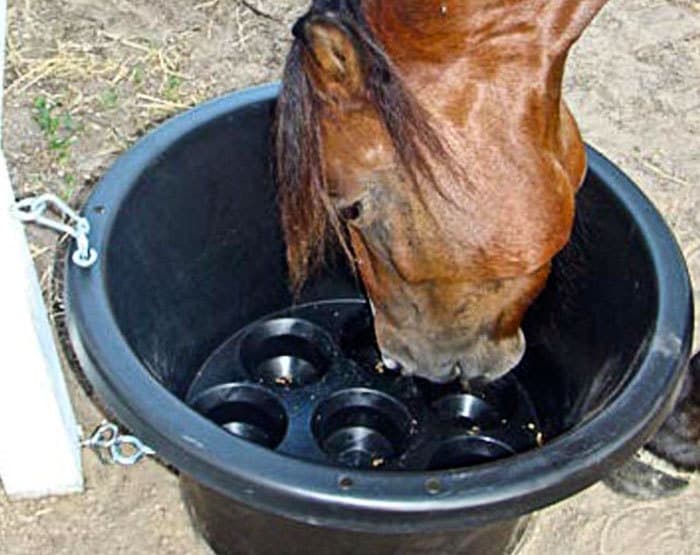Feeding Choke-Prone Horses

To prevent esophageal obstruction, take a page from the scientific journals
Derby, your 15-year-old Thoroughbred, hasn’t finished his grain. A greenish nasal discharge and a large amount of saliva stream from his mouth. He also keeps extending his neck and coughing repeatedly, as if he’s trying to clear his throat. What’s going on here?
Choke, or esophageal obstruction, occurs when food or foreign materials partially or completely block the esophagus. Choke might not be immediately life-threatening—he can still breathe—but it is distressing, will prevent your horse or pony from eating and drinking, and must be addressed by a veterinarian as soon as possible. In fact, many horses that have choked need to be on antibiotics to prevent or treat aspiration pneumonia, which can be deadly.
In this article, we will discuss which equid groups are at the highest risk for developing feed-related choke and suggest mealtime management techniques to help reduce those risks
Create a free account with TheHorse.com to view this content.
TheHorse.com is home to thousands of free articles about horse health care. In order to access some of our exclusive free content, you must be signed into TheHorse.com.
Start your free account today!
Already have an account?
and continue reading.
Written by:
Kristen M. Janicki, MS, PAS
Related Articles
Stay on top of the most recent Horse Health news with












